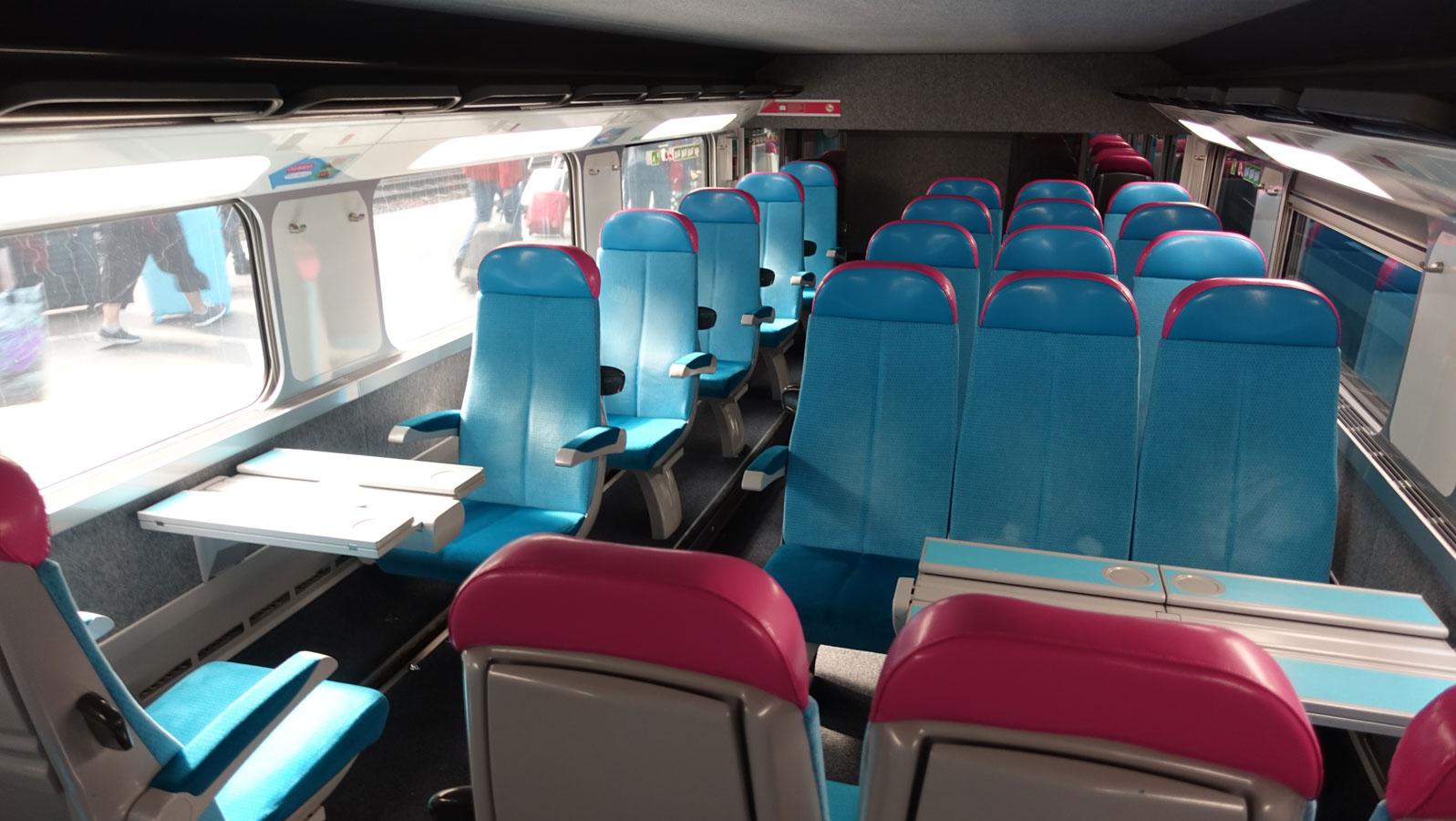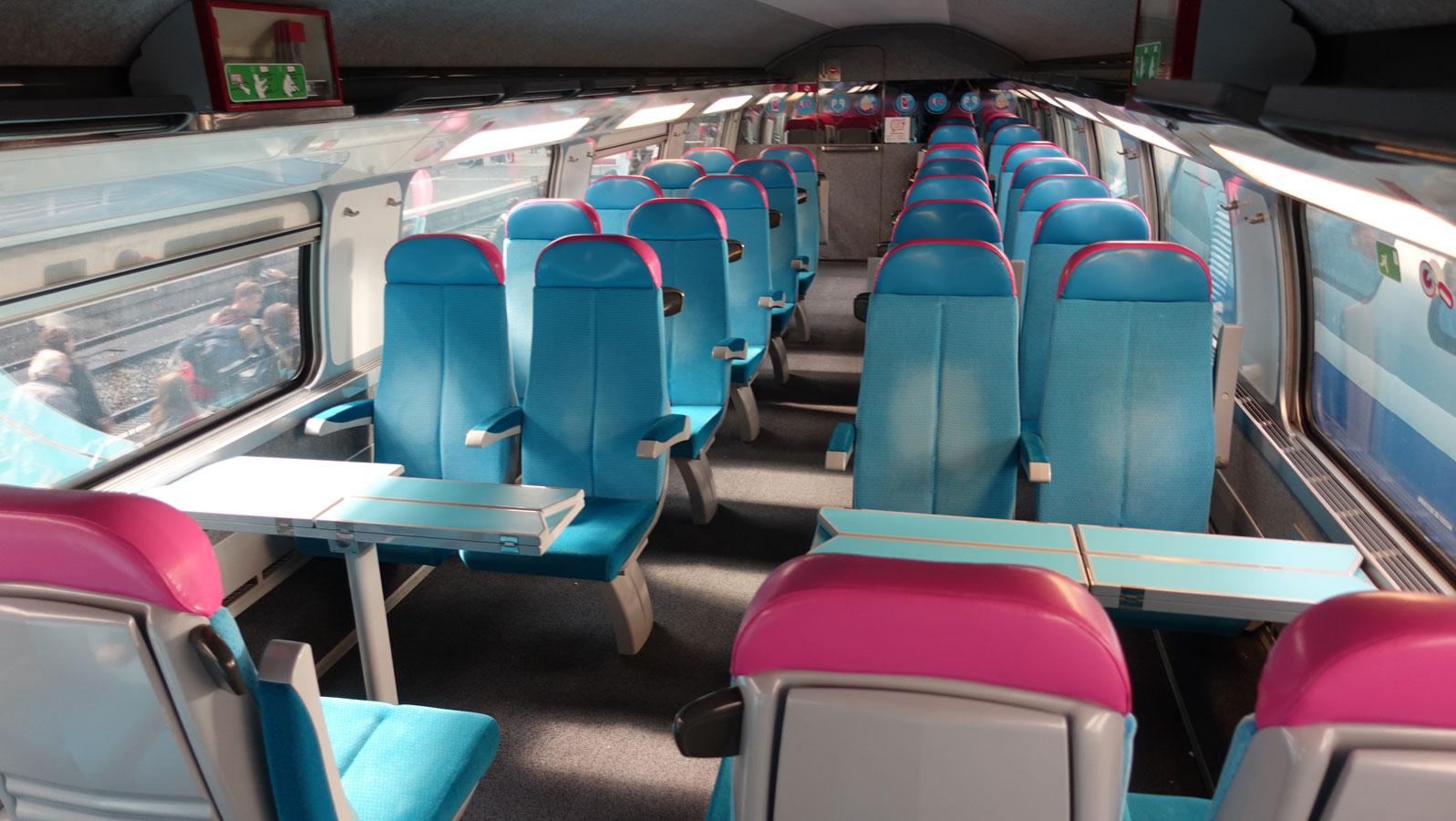In the tempo of Spain’s vibrant life, where the pulse of flamenco, the savor of tapas, and the grandeur of its landscapes blend into a canvas of cultural majesty, a new story emerges from the tracks that crisscross the country. This narrative, however, carries a cadence distinct from the usual tales of historic glory or artistic marvel that Spain often tells the world. It involves Ouigo, the French low-cost train operator that dared to challenge the conventional paradigms of rail travel affordability in Spain. With prices that seem too good to be true, Ouigo has found itself at the center of an unexpected controversy, accused by none other than the country itself of selling train tickets for too cheap. This juxtaposition of economic strategy and national scrutiny whispers of a deeper exploration into the bounds of competition, consumer benefit, and the palpable tension between old infrastructures and new market disruptors. As we embark on this journey to unfold the layers behind Spain’s allegations, we invite you to consider both the economics of transportation and the intricacies of regulatory engagements that shape the ever-evolving narrative of modern mobility.
Spain’s Low-Cost Rail Dilemma: Ouigo’s Price War Sparks Debate
The advent of Ouigo in Spain’s railway sector has ushered in a new era of competitively priced travel options, shaking the foundations of traditional pricing models. The French-owned operator, a subsidiary of the state railway company SNCF, has been at the forefront of offering low-cost train tickets, igniting a national conversation. Critics argue that these bargain prices, while consumer-friendly, could potentially disrupt the market’s equilibrium. Proponents, on the other hand, praise the move for democratizing travel and increasing accessibility for the average Juan and Maria. It’s a classic clash of market dynamics vs. public utility, with the scales yet to tip in favor of either argument.
In response to Ouigo’s aggressive pricing strategies, there has been a surge in public discourse surrounding the long-term implications for Spain’s railway infrastructure and economy. The heart of the debate lies in whether these low prices reflect a triumph of efficiency and innovation or constitute predatory pricing poised to undermine national carriers. Ouigo’s approach has certainly made waves, prompting responses from competitors and eliciting a flurry of policy discussions from transportation authorities. As the dialogue unfolds, the following questions remain: will Ouigo’s model inspire a new standard for pricing in the rail industry, or will it prompt regulations to ensure market stability? Only time will tell, but the conversation it has sparked is undeniably shifting the tracks of Spain’s railway narrative.
| Carrier | Normal Price | Ouigo Price | Savings |
|---|---|---|---|
| Madrid to Barcelona | €90 | €40 | €50 |
| Valencia to Seville | €70 | €30 | €40 |
| Malaga to Madrid | €80 | €35 | €45 |
Unpacking the Economics: How Ouigo’s Pricing Challenges Traditional Rails
In the tapestry of European rail travel, the introduction of Ouigo has been akin to a vibrant, disruptive streak of paint. With its roots in France and branches stretching out to Spain, Ouigo’s model hinges on the revelation of low-cost high-speed train travel. By offering tickets at prices that significantly undercut traditional rail fares, Ouigo has not just captured the imagination of budget-conscious travelers but has also ignited a fierce debate on the economics of train travel. **Boldly**, the company leverages a combination of cost-saving strategies – including simpler fare structures, the use of less central train stations, and a strong emphasis on digital ticket sales – to offer astonishingly low prices.
This pricing strategy, while a boon for consumers, has ruffled feathers within the corridors of Spain’s traditional rail operators. It propels a pressing question into the limelight: How does Ouigo manage to keep its prices so low without compromising on service quality? The answer partly lies in its innovative utilization of resources and a relentless focus on efficiency. Unlike traditional rail services that offer a spectrum of first and standard class seating, dining cars, and additional amenities, Ouigo strips the journey down to its essentials. This no-frills approach is reflected in a comparison table below, illustrating the stark contrasts in service offerings and price points between Ouigo and its conventional counterparts.
<table class="wp-block-table">
<thead>
<tr>
<th>Service</th>
<th>Ouigo</th>
<th>Traditional Rail</th>
</tr>
</thead>
<tbody>
<tr>
<td><b>Ticket Price</b></td>
<td>Significantly Lower</td>
<td>Higher</td>
</tr>
<tr>
<td><b>Class Options</b></td>
<td>Single Class</td>
<td>Multiple Classes</td>
</tr>
<tr>
<td><b>Amenities Offered</b></td>
<td>Limited</td>
<td>Extensive</td>
</tr>
<tr>
<td><b>Booking Method</b></td>
<td>Online Only</td>
<td>Various Channels</td>
</tr>
</tbody>
</table>Through this comparison, it becomes evident that Ouigo’s minimalist service model is central to their pricing challenge against traditional rails. By reimagining the very essence of rail travel, Ouigo not only offers a compelling alternative to high-cost trains but also ignites discussions on sustainable pricing strategies in the European rail industry. This disruptive approach has undeniably set the stage for an intriguing balancing act between affordability, service quality, and long-term viability in the rail sector.
Regulatory Perspectives on Rail Pricing: Finding the Balance
In the dynamic landscape of rail transport, Spain has cast a spotlight on Ouigo, the French low-cost high-speed train service, for what it deems to be ultra-competitive ticket pricing. This contentious issue strikes at the heart of the ongoing debate between fostering competition to benefit consumers and ensuring the sustainability of rail services. The heart of the matter resides in finding a harmonious balance where regulatory frameworks support fair competition without compromising the viability of rail operators. The regulatory perspective advocates for a market environment where pricing strategies do not undercut the essential costs of maintaining and operating safe, efficient rail services.
The Pricing Paradox: A Regulatory Challenge
This unprecedented case has regulatory bodies examining the intricate dance of competition laws versus market forces. On one side, the allure of affordable travel options opens up rail transport to a broader demographic, potentially increasing overall rail usage. On the other, there’s a palpable concern that predatory pricing could destabilize the market, leading to monopolistic practices or, conversely, the exit of key players unable to sustain operations against cut-throat pricing.
| Aspect | Consumer Benefit | Regulatory Concern |
|---|---|---|
| Lower Prices | Increased Accessibility | Market Destabilization |
| Competition | Variety of Choices | Risk of Unfair Practices |
| Sustainability | — | Long-term Viability of Services |
The Spanish authorities’ standoff with Ouigo underscores the significance of regulatory frameworks that flexibly accommodate both the growth of innovative business models and the essential principles of fair competition and service sustainability. As the saga unfolds, it becomes a tell-tale case for other nations grappling with similar issues, offering vital insights into achieving a delicate balance in the rail industry’s evolving narrative.
Next Stops for Ouigo: Recommendations for Sustainable Pricing Strategies
In the ever-evolving world of low-cost travel, Ouigo’s foray into the Spanish rail market has certainly raised eyebrows and sparked debates, particularly with accusations flying about the sustainability and practicality of their rock-bottom pricing strategies. As this conversation heats up, it’s crucial that Ouigo considers a range of recommendations to navigate these waters, not only to maintain its competitive edge but also to ensure a harmonious relationship with regulatory bodies and a sustainable business model. Among the strategies worth contemplating, the implementation of dynamic pricing models stands out. This involves adjusting ticket prices in real-time based on demand, availability, and other market factors. Such a strategy could address concerns about underpricing while still offering deals that are enticing to consumers.
Dynamic Pricing Strategies and Environmental Considerations:
- Implementing an algorithm that responds to real-time data, balancing demand with sustainability goals, could help in optimizing occupancy without falling into the trap of underpricing.
- Introducing loyalty programs for frequent travelers that encourage off-peak travel, further balancing demand across the network and reducing peak time congestion.
In addition to strategic pricing, Ouigo must embrace environmental stewardship as a core part of its value proposition. This not only aligns with global shifts towards greener travel options but also provides a competitive edge in a market that’s increasingly conscious of carbon footprints. Initiatives like investing in more energy-efficient trains or incorporating carbon offset options for passengers could be pivotal. Such measures would not only underline Ouigo’s commitment to sustainability but also potentially justify a premium in the eye of the eco-conscious consumer, striking a balance between affordability and environmental responsibility.
| Sustainable Practice | Expected Impact |
|---|---|
| Energy-efficient Trains | Reduction in Carbon Emissions |
| Carbon Offset Options | Enhanced Consumer Trust |
| Frequent Traveler Off-peak Discounts | Better Demand Distribution |
By addressing pricing strategies through a lens of sustainability and ethical operation, Ouigo could navigate the challenges it faces in the Spanish market, drawing in customers who value not only cost-effectiveness but also the environmental and social implications of their travel choices.
In Retrospect
In weaving through the tapestry of Spain’s richly diverse landscapes and cultures, train travel emerges as an experience as enthralling as the destinations it unites. Yet, the recent accusations levelled against Ouigo for offering too cheap train tickets adds an intriguing stitch to this narrative. As this story unfolds, revealing layers of economic strategy, regulatory oversight, and consumer interests, one thing remains unequivocally clear: the journey towards balancing affordability with sustainability in the rail industry is an intricate voyage of its own. As we disembark from this exploration, let us remain curious and open-minded, understanding that every twist and turn in this narrative holds the potential to reshape the way we traverse Spain’s enchanting terrains. For now, we await further developments, ready to embark on the next chapter of this evolving saga, tickets in hand.




